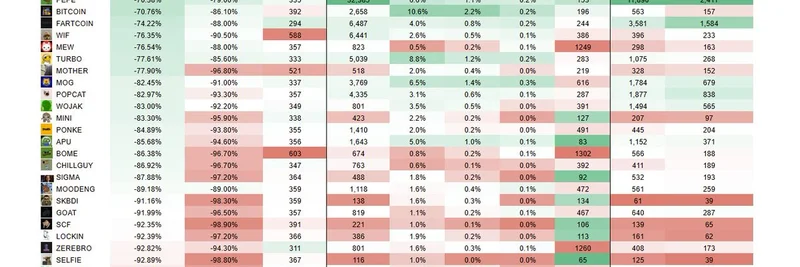In the ever-evolving world of cryptocurrency, privacy tools like mixers have become hot topics, especially with recent legal battles shaking the community. A recent thread by @tanuki42_ on X (formerly Twitter) breaks down the differences between Samourai Wallet and Tornado Cash, sparked by the sentencing of Samourai developer Keonne Rodriguez to five years in prison. If you're into meme tokens or broader blockchain tech, understanding these distinctions is crucial—after all, privacy isn't just for the pros; it's for anyone holding assets in this space.
Let's start with the basics. The thread quotes a post from The Rage announcing Rodriguez's sentence: five years behind bars, a $250,000 fine, and three years of supervised release. This stems from charges related to operating an unlicensed money-transmitting business through Samourai Wallet's Whirlpool mixer. But @tanuki42_ argues that comparing this to the Tornado Cash case is a mistake that could harm genuine privacy efforts.
Non-Custodial Doesn't Mean Decentralized
One key point @tanuki42_ hammers home is the confusion between "non-custodial" and "decentralized." Both Whirlpool and Tornado Cash are non-custodial mixers—meaning neither takes control of your funds during the mixing process. However, that's where the similarities end.
Tornado Cash runs on smart contracts, making it truly decentralized. No single entity controls it, which is why it kept chugging along even after developers Roman Storm and Alexey Pertsev faced arrests. On the flip side, Samourai's Whirlpool relied on a central coordinator server run by Rodriguez and his co-founder William Hill. When the U.S. government seized that server, Whirlpool ground to a halt. It's a classic single point of failure, showing how centralization can undermine even the best intentions.
Fees and Profit Motives
Another big differentiator? Fees. Samourai charged users directly for Whirlpool and Ricochet transactions—think 0.0175 BTC per entry into certain pools. @tanuki42_ points out that these fees went straight to the developers, raking in over 200 BTC (worth more than $20 million today). It's transparent, sure, but it's also centralized profit from facilitating mixes.
Tornado Cash? No such direct fees. While there's talk of revenue through governance tokens, it's not the same hands-on, fee-per-transaction model. This setup in Samourai raises questions about intent and operation, especially in legal eyes.
Marketing to the Wrong Crowd?
Marketing plays a huge role here too. Samourai, according to the thread, was openly pitched to those looking to evade blacklists and AML checks—features like Ricochet added "hops" to transactions for a fee, basically to dodge exchange scrutiny. While traceable, it was sold as a way to "stump the blacklists." @tanuki42_ sees this as evidence of intent toward money laundering, not just privacy.
Tornado Cash stuck to decentralized mixing without bells and whistles aimed at skirting regulations. No Ricochet equivalents here—just pure, protocol-level privacy.
Privacy Pitfalls in Samourai
Ironically, for a privacy tool, Samourai had some glaring issues. Mobile users (those not running their own nodes) shared their XPUB keys with Samourai's servers—keys that could link pre- and post-mix addresses. The government allegedly logged these, making "de-mixing" possible and shrinking anonymity sets for everyone.
Tornado Cash avoids this centralization trap at the protocol level, though it did have a centralized front-end. @tanuki42_ estimates that while Samourai claimed 60% of users ran their own nodes, the numbers don't add up with total Bitcoin nodes out there.
The Bigger Picture for Crypto and Meme Tokens
Wrapping it up, @tanuki42_ stresses that Samourai's case involves centralized elements, direct profits, and marketing that courted trouble—unlike Tornado's decentralized purity. Conflating them weakens defenses for true privacy innovators like Storm and Pertsev.
For meme token enthusiasts, this matters because privacy tools protect your holdings from prying eyes, whether it's a viral cat coin or blue-chip BTC. But building with anti-abuse mechanisms is key to mainstream adoption. Shoutout to projects like Railgun and Bow for pushing decentralized privacy without the pitfalls.
Being pro-privacy doesn't mean ignoring abuse. Decentralization isn't a free pass for laundering—it's about empowering everyday users. If you're diving into meme tokens, keep an eye on how privacy evolves; it could make or break your portfolio's security.
This thread is a must-read for anyone in crypto, reminding us that not all privacy tools are created equal. Check it out here for the full scoop.




